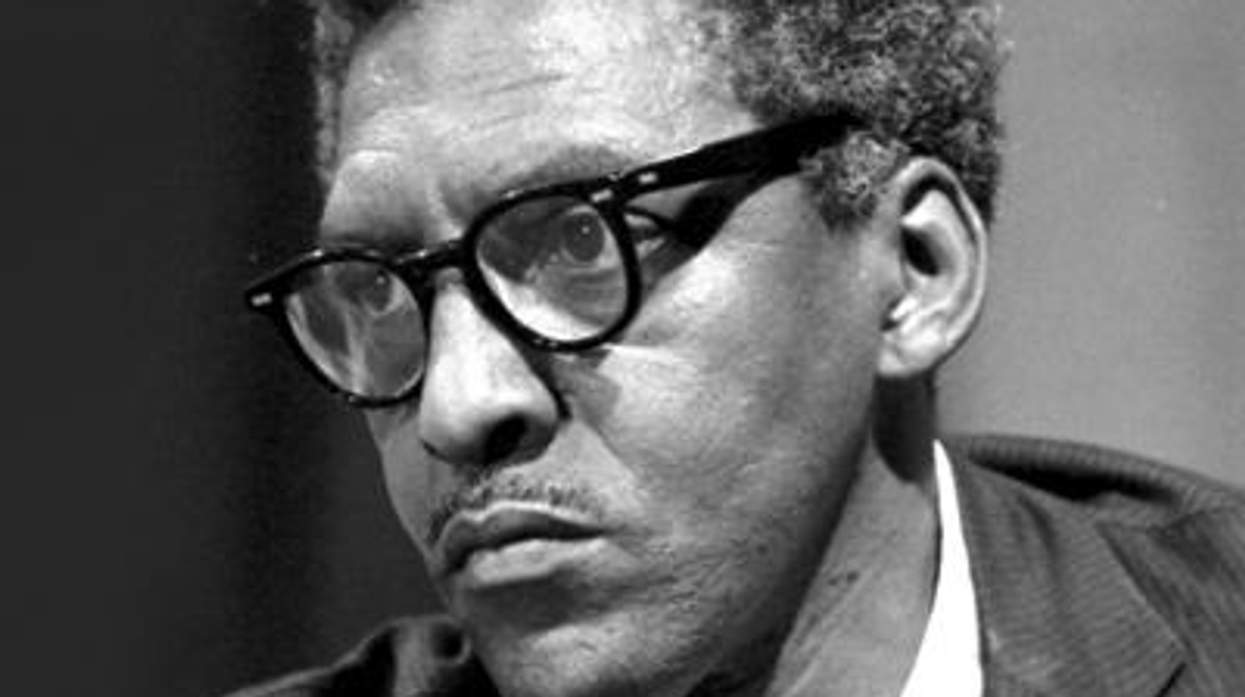Fifty years ago this month, as the nation's capital prepared for the pivotal March on Washington for Jobs and Freedom, South Carolina senator Strom Thurmond stood on the U.S. Senate floor and held forth against the march's organizer, the openly gay civil rights activist Bayard Rustin.
Sen. Thurmond -- who six years earlier had staged the longest filibuster in the nation's history in order to stop civil rights legislation -- railed against the civil rights movement and against Rustin in particular, calling him a "communist, draft-dodger, and a homosexual" and a "sex pervert."
Gay rights were not mentioned in the March on Washington, and Rustin's identity was far from universally accepted among civil rights leaders. But Thurmond's words made clear what is even clearer to us today: Just as the antigay movement is and was closely tied to efforts to stop civil rights and restrict opportunity for the poor and working class, so must those movements continue to work together to fight a common adversary.
The movement that Thurmond represented wasn't just racist or antigay or antiworker. It was -- and still is -- about choosing who does and does not have the power to pursue the American dream. It's about systematically cutting off certain groups of people from the right to vote, to earn a living wage, to make choices about their own bodies, to recognize and provide for their families.
We must remember that, in the words of Dr. Martin Luther King Jr., "Injustice anywhere is a threat to justice everywhere."
The renewed attacks on voting rights throughout the country, coupled with extreme gerrymandering of congressional districts and the destruction of campaign finance laws, are attempts to keep power in the hands of those who already have it by silencing the voices of those who don't. These are threats to justice everywhere.
Attacks on the rights of workers to organize into labor unions are attempts to consolidate power where power already exists. These are threats to justice everywhere.
Eleven million Americans have been left by an outdated immigration system with no way to earn citizenship and give back to their country. This is a threat to justice everywhere. A criminal justice system embedded with destructive and racially biased sentencing rules that offers up the lives of our young people to feed the profits of private prisons is a threat to justice everywhere. And yes, a system where an LGBT person can be fired for talking about her family, where her family may not even be legally recognized, is a threat to justice everywhere.
To me, Dr. King's phrase means looking at where issues of human struggle intersect and centering our advocacy at those places. It means erasing from our minds the idea of someone else's issue.
Five decades after Strom Thurmond publicly attacked Bayard Rustin for the double "sin" of being black and gay, I look forward to marching this Saturday alongside leaders of the black church and leaders of the gay rights movement. Both have made great strides in the past 50 years, and both have a great way to go. Our struggles are not the same. We don't always agree. But we must recognize that the only way forward is together.
Injustice anywhere is a threat to justice everywhere. Now we all must know that there is no such thing as someone else's issue.
DR. KENNETH L. SAMUEL is the senior pastor of Victory for the World Church in Stone Mountain, Ga. He serves as cochair of People for the American Way Foundation's African American Ministers Leadership Council.




































































Charlie Kirk DID say stoning gay people was the 'perfect law' — and these other heinous quotes